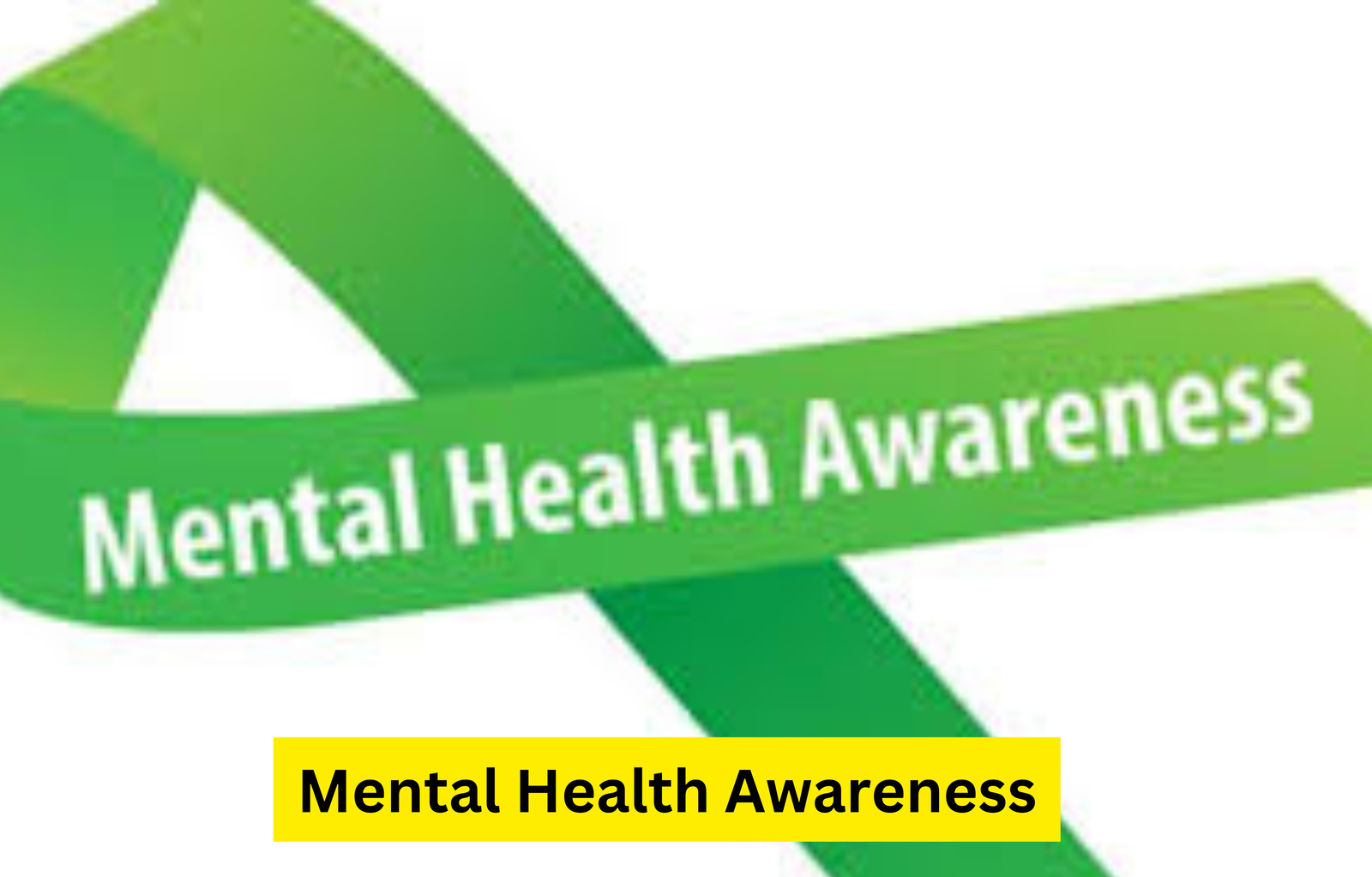Mental Health Awareness: Understanding the Importance of Mental Well-being

Mental health is an integral part of our overall well-being, yet it is often overlooked or misunderstood. Mental health awareness aims to shed light on the importance of mental well-being, reduce stigma, and provide support to those who need it. In recent years, conversations around mental health have become more prominent, but there is still much work to be done in educating the public about mental health issues and ensuring that individuals have access to the resources they need.
In this comprehensive article, we will explore the significance of mental health awareness, discuss common mental health conditions, and offer practical strategies for promoting mental well-being. We will also answer frequently asked questions to help clarify some of the most pressing concerns related to mental health.
What is Mental Health Awareness?
Mental health awareness involves educating individuals about the importance of mental well-being, recognizing the signs of mental health conditions, and providing information on how to seek help. It is about breaking down the barriers of stigma that prevent people from discussing mental health openly and fostering a culture where mental health is seen as just as important as physical health.
also read: Employers’ Duty to Protect Mental Health of Employee: What the Labour Laws Say in 2024
Why is Mental Health Awareness Important?
Mental health awareness is crucial because it can:
- Reduce stigma: Stigma surrounding mental health can prevent individuals from seeking help. Raising awareness can encourage more open discussions and create an environment where people feel comfortable talking about their mental health.
- Improve access to care: Awareness helps people recognize when they need help and provides them with information about available resources.
- Promote early intervention: Recognizing the early signs of mental health issues can lead to timely intervention, which is often more effective in preventing the condition from worsening.
- Enhance overall well-being: Understanding mental health promotes better self-care and coping strategies, improving one’s quality of life.
Common Mental Health Conditions
Understanding different mental health conditions is a key aspect of mental health awareness. Below are some of the most common mental health disorders:
1. Depression
Depression is a mood disorder characterized by persistent feelings of sadness, hopelessness, and a lack of interest in activities that once brought joy. It can affect a person’s ability to function at work, home, or school. Symptoms may include fatigue, changes in appetite, difficulty concentrating, and thoughts of suicide.
2. Anxiety Disorders
Anxiety disorders encompass conditions like generalized anxiety disorder (GAD), panic disorder, and social anxiety disorder. These disorders involve excessive worry, fear, or nervousness, often about everyday situations. Physical symptoms can include sweating, rapid heart rate, and restlessness.
3. Bipolar Disorder
Bipolar disorder is characterized by extreme mood swings that include emotional highs (mania or hypomania) and lows (depression). These shifts in mood can affect energy levels, behavior, and the ability to think clearly.
4. Post-Traumatic Stress Disorder (PTSD)
PTSD develops after a person experiences or witnesses a traumatic event. Symptoms may include flashbacks, nightmares, severe anxiety, and uncontrollable thoughts about the event. PTSD can significantly disrupt a person’s daily life.
5. Eating Disorders
Eating disorders, such as anorexia nervosa, bulimia nervosa, and binge-eating disorder, are serious conditions related to persistent disturbances in eating behaviors. These disorders can lead to severe physical and emotional consequences if left untreated.
6. Schizophrenia
Schizophrenia is a severe mental health disorder that affects how a person thinks, feels, and behaves. People with schizophrenia may experience hallucinations, delusions, and disorganized thinking. It can be a chronic condition requiring long-term treatment.
also read: Zomato Co-founder Akriti Chopra Resigns: What’s Next for the Food Delivery Giant?
Promoting Mental Health Awareness
Raising mental health awareness is a collective effort that can be promoted through various means:
1. Education and Training
Providing education about mental health in schools, workplaces, and communities can help individuals better understand mental health issues. Mental health training for employers, teachers, and healthcare providers can equip them with the skills to support those in need.
2. Open Dialogue
Encouraging open discussions about mental health can help normalize conversations and reduce stigma. Creating safe spaces for people to share their experiences without fear of judgment is crucial for fostering mental health awareness.
3. Mental Health Campaigns
Public health campaigns that promote mental health awareness can reach large audiences and have a significant impact. Campaigns like World Mental Health Day or Mental Health Awareness Month raise awareness and provide resources for those affected by mental health issues.
4. Access to Resources
Ensuring that mental health resources, such as counseling services, hotlines, and support groups, are readily available and accessible to all individuals is vital for improving mental health outcomes.
How to Take Care of Your Mental Health
Mental health is something that requires continuous care. Here are practical ways to maintain and improve your mental well-being:
1. Practice Self-Care
Taking time for yourself is essential. Self-care can include activities like exercising, meditating, journaling, or simply enjoying hobbies that make you happy. Prioritizing sleep and a healthy diet are also crucial for mental well-being.
2. Seek Support
It is important to reach out for help when you need it. Whether it’s talking to a friend, family member, or mental health professional, having a support system is key to navigating challenging times.
3. Manage Stress
Learning to manage stress effectively can prevent it from escalating into more serious mental health issues. Stress management techniques include relaxation exercises, time management, and setting realistic goals.
4. Stay Connected
Maintaining social connections with friends, family, or community groups can help prevent feelings of isolation. Staying engaged with others can enhance your sense of belonging and provide emotional support.
5. Limit Social Media
While social media can be a great tool for staying connected, excessive use can have negative effects on mental health. Limiting screen time and taking breaks from social media can help reduce feelings of anxiety and comparison.
FAQs About Mental Health Awareness
What is mental health awareness?
Mental health awareness is the process of educating people about mental health, reducing the stigma surrounding mental health conditions, and promoting mental well-being. It involves recognizing mental health issues and providing information about how to seek help.
Why is mental health awareness important?
Mental health awareness is important because it helps reduce stigma, encourages people to seek help, and promotes early intervention for mental health issues. It also plays a crucial role in improving overall well-being by fostering environments that support mental health.
How can I promote mental health awareness?
You can promote mental health awareness by educating yourself and others about mental health issues, encouraging open discussions, supporting mental health campaigns, and providing resources to those in need. Volunteering with mental health organizations or sharing your experiences can also help raise awareness.
What are the signs of a mental health issue?
Signs of a mental health issue may include prolonged feelings of sadness, anxiety, changes in behavior, withdrawal from social activities, difficulty concentrating, and changes in sleep or appetite. If these symptoms persist or interfere with daily life, it may be time to seek help.
How can I seek help for mental health concerns?
Seeking help for mental health concerns can involve talking to a mental health professional, such as a therapist or counselor, reaching out to support groups, or calling a mental health hotline. Many healthcare providers also offer mental health services.
What should I do if someone I know is struggling with their mental health?
If someone you know is struggling with their mental health, offer a listening ear and provide emotional support. Encourage them to seek professional help and remind them that it’s okay to ask for help. Be patient and non-judgmental in your interactions.
Can mental health be improved?
Yes, mental health can be improved through self-care practices, professional help, and positive lifestyle changes. Therapy, medication, and support from loved ones can all play a role in improving mental health.





